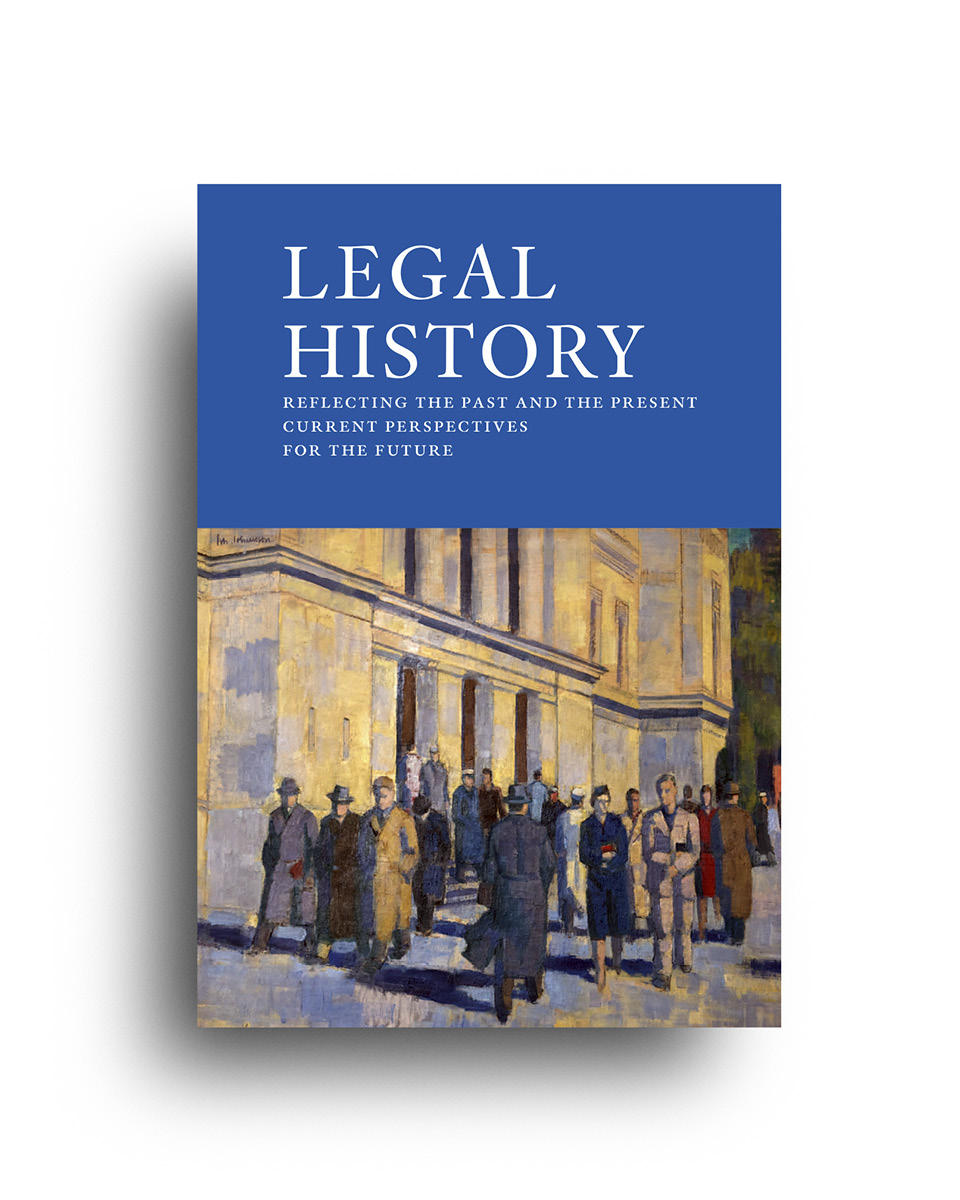Legal History. Reflecting the Past and the Present Current Perspectives for the Future
2021, 384 sidor
Beginning in 2016 Lund University in Sweden celebrated its 350 years of existence. In 1666 the new university got its constitution, and January 28 1668 the university was inaugurated. The Law Faculty celebrated the event with several seminars and symposia. In November 2017, the legal historians in Lund arranged an international symposium dedicated to the doctores honoris causæ elected within the discipline of legal history at the Law Faculty. The topic of the historiographical symposium concerned the impact of and interaction with the nine Nordic, European and American scholars who received their honorary degrees at the Law Faculty from 1990 up to today. This book is dedicated to them. This volume gives examples of the development of legal scholarship in a dynamic environment from the post-World War II up to today. The diversity of the research areas – with scholarly networks and theoretical and methodological discourses – exemplifies the “Historical turn” within the law, and demonstrates the development of an internationalized discipline of legal history in the late modernity during the last quarter century. Each of the nine honorary doctors gives a presentation of their scholarly work, as well as a number of internationally established European scholars elaborate on their current perspectives on legal history – reflecting on the past and the future.
Contents:
Mia Rönnmar, Preface. Johan Hirschfeldt, Foreword. Introduction.
- Kjell Å Modéer, Law, time, and space: Legal history: The Lund perspective: A tribute to our honorary doctors.
- Matthew Dyson, Presence of mind and the future of legal history. Part I. Supreme Courts.
- Bernhard Diestelkamp, Die höchsten Gerichte und Rechtliche Zeitgeschichte.
- Serge Dauchy, Central courts, an inexhaustible source of information for legal history: The example of the French parlements and sovereign councils.
- Nils Jörn, The Wismar Tribunal: A survey of the research. Part II. Legal Cultures.
- Kjell Å Modéer, ‘That’s the way I am’: Lawrence M. Friedman in interview.
- Jørn Øyrehagen Sunde, Legal culture as a tool for legal analysis.
- Eva Löfgren, A spatial history of Swedish rural courts. Part III. Contemporary Legal History.
- Michael Stolleis, Social law, contemporary legal history, and the history of public law.
- Henrik Wenander, The Ghost of the King: Traces of ‘Royal Majesty’ in the Swedish constitution of 1974.
- Mats Kumlien, A short comment on the History of Administrative Law and Michael Stolleis. Part IV. Intellectual Legal History.
- Lars Björne, Nordic legal science: Diversity and unity.
- Søren Koch, Legal compilation in early modern Denmark and Norway: Creatively recycling the law. Part V. Comparative Legal History.
- Reinhard Zimmermann, Understanding the law in historical and comparative perspectives.
- Kjell Å Modéer, Law émigré Max Rheinstein (1899 – 1977): A comparatist in pre-war Germany and post-war America. Part VI. European Legal Integration.
- Pia Letto-Vanamo, The Europeanization of legal cultures.
- Martin Sunnqvist, The rule of law as a criterion for Europé.
- Nina-Louisa Arold Lorenz, A kaleidoscope of people: The legal cultures of the European Court of Human Rights and the European Court of Justice. Part VII. Legal History and Legal Science.
- Dag Michalsen, The temporalities of constitutions.
- Dag Michalsen, Constitutions and codifications, 1667–2017: A legal historian’s reflection.
- Heikki Pihlajamäki, Why legal history matters: Dangerous social sciences and the authoritarian state.
- Lena Foljanty, Concluding remarks: The future of legal history
